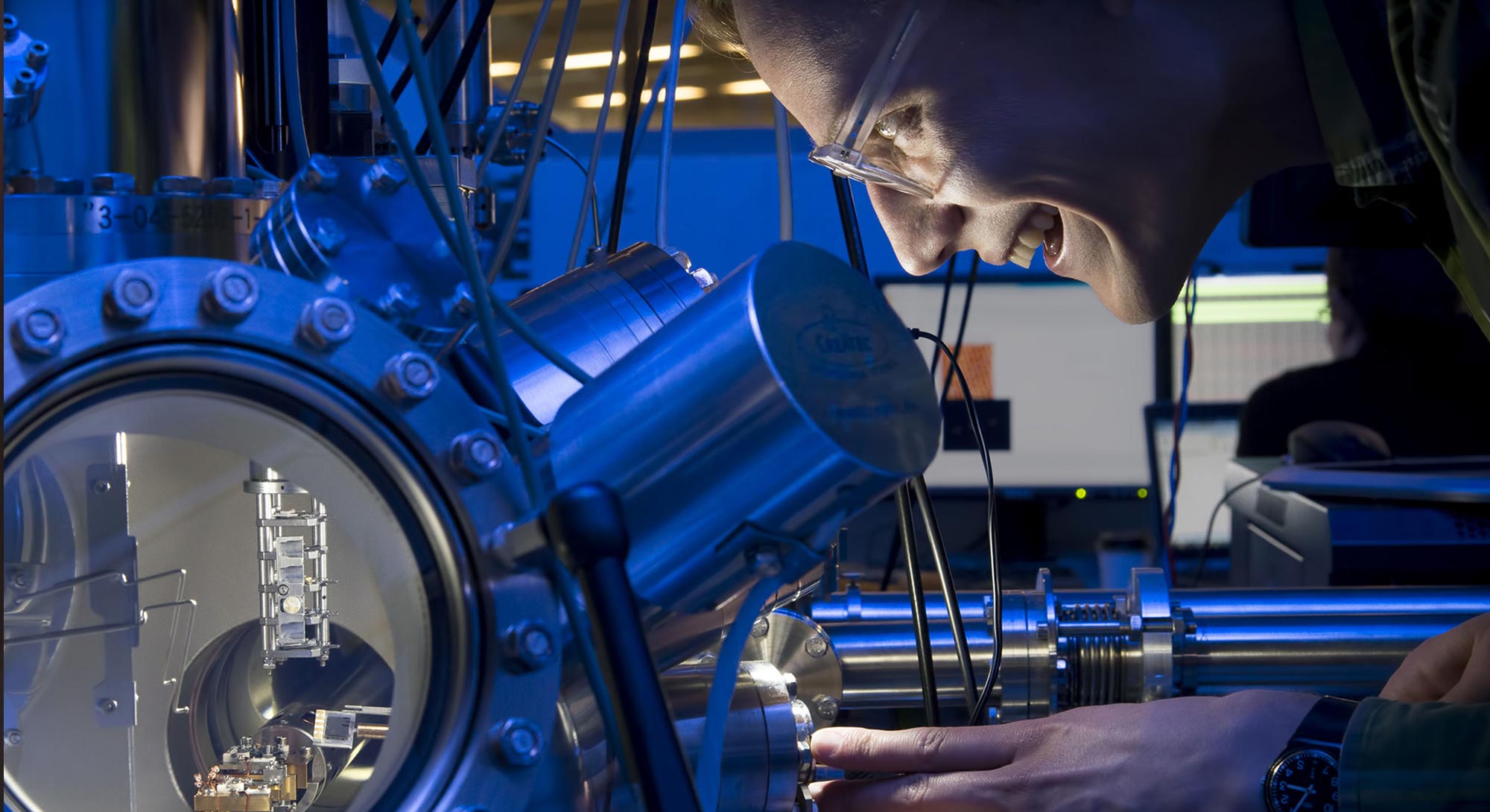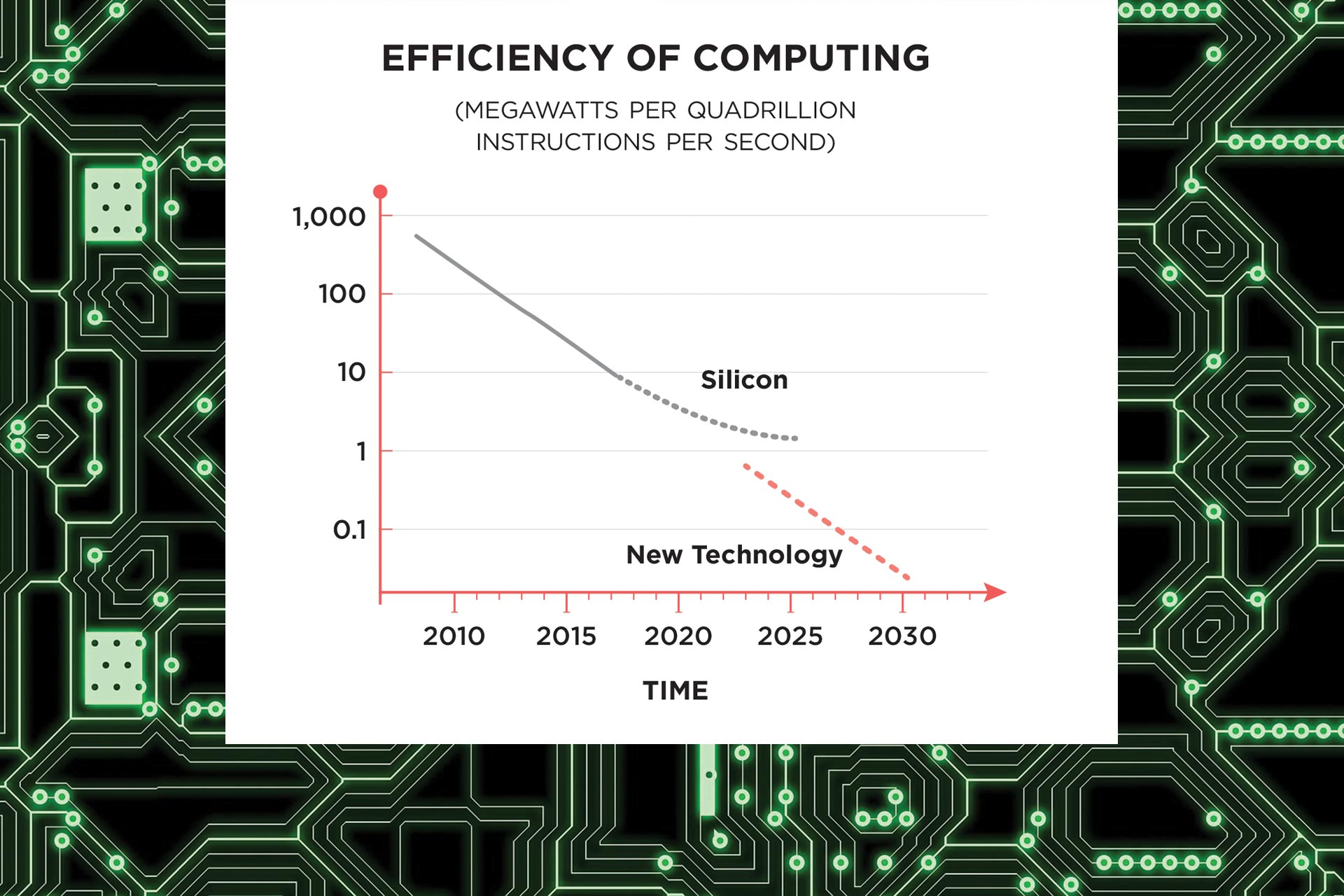
Vision
A year of unique challenges underlines FLEET's key challenge
Research Momentum
FLEET envisions changing the electronics industry, but also changing the way basic research in electronic materials is done.
A few developments of the past year illustrate the changes driving FLEET, and the changes that FLEET is driving.
A year of unique challenges
The lead story of 2020 was an unexpected one, emerging just as last year’s annual report went to press.
The COVID-19 global pandemic was a major stress test for every individual, institution and society, and it exposed many hidden faults and weaknesses.
COVID also fundamentally changed many aspects of research – and of work and life in general – but the changes also offered new opportunities. FLEET (and the rest of the world) is still in the midst of this change.
To date, FLEET has managed the crisis portion of the pandemic well, which is a testament to the strength, flexibility and diversity of our team. The next phase will be to learn from the response, and to evaluate the new, changed landscape of collaborative research, using the opportunities those changes present to do even better.
The pandemic and energy
FLEET’s mission – to develop new, low-energy computing technology – comes as a response to an extrapolation of current trends: energy use in information and computation technology (ICT) is growing unsustainably even while energy use is shrinking in other sectors.
The COVID-19 pandemic has accelerated these trends.
It has been widely noted that overall greenhouse gas emissions will be lower in 2020 than in 2019 (due to decreased economic activity, driving, air travel etc.), while at the same time the ICT industry has seen an unprecedented rise in demand, particularly for energy-intensive streaming video (an issue we wrote about in 2020 for The Conversation).
Moreover, it now seems unlikely that we will return to ‘business as usual’. Rather, it appears the pandemic has produced a permanent shift in work culture – to less physical commuting and travel, and to more telecommuting.
This sharp increase in our dependence on digital connection makes FLEET’s mission all the more urgent.
Responding to a changing environment
Centres of Excellence are designed to address complex, interdisciplinary, long-term problems. But the mix of planning and flexibility required to meet these challenges also can make Centres more resilient to systemic shocks. The shock presented by COVID-19 required a shift in strategy on many fronts.
At their core, Centres are about collaboration and communication: within the Centre, with our partners and with external stakeholders.
Faced with the unique challenges of 2020, FLEET had to rethink how we accomplished collaboration and communication at every level.
Some collaborative activities required in-person presence (for example, in laboratories) and were simply impossible under COVID restrictions. This delayed some research, but FLEET exploited its networks to work around many problems and minimise disruptions.
This report details the many ways FLEET adapted in response to the pandemic. Our response to the pandemic (see the boxed text Responding to 2020) shows the strength of the community FLEET has built and the advantage of having a diverse group generating diverse ideas for change.
We have already begun to learn from the lessons of 2020 by surveying our membership about the effects of COVID on their work and about our (online) annual workshop.
Some things are already clear. The effects of the pandemic are extremely mixed: some found working from home extremely difficult while others found they could be more productive. Surprisingly, we found that some aspects of communication improved during the pandemic. The ‘tyranny of distance’ that has historically handicapped Australian research was greatly reduced: when everyone is online, everyone is equally close (or far)!
But our surveys also identified perhaps the most difficult aspect to replace: the intangible social cohesion that comes from in-person events and meetings. The challenge is to learn which aspects of collaboration can be replaced with virtual presence and which cannot. And we need to develop new, efficient ‘best practices’ for operating in a more digitally connected, but less physically connected, post-pandemic world.
The pandemic and equity
In addition to addressing complex problems, Centres of Excellence also have the capacity to change research culture. For example, FLEET’s mission includes improving gender equity in STEM research. Here again, the global pandemic brought both unique challenges and promising new opportunities.
A particular challenge is the way the impacts of the pandemic have fallen more heavily on caregivers and early-career researchers. Experience suggests that these impacts will accordingly fall on young women more heavily, affecting career advancement.
This report describes some of the actions FLEET has taken to mitigate those impacts.
Moving forward, however, we see new opportunities. The post-pandemic world will likely see permanent shifts in work culture towards more flexible work arrangements, more work from home and less travel. These are aspects already identified as helping to create a more equitable environment that does not disadvantage caregivers, who are more likely to be women.
We will work to fully realise these gains and understand what new opportunities will be possible as we overcome the pandemic.
FLEET’s grand challenge:
a sustainable future for computing
Computing provides overwhelming benefits to the community and economy. FLEET’s mission is to enable continuing growth of computing without that growth being ‘throttled’ by the availability and costs of energy.
FLEET addresses a grand challenge: reducing the energy used in information and communication technology (ICT), which already accounts for about 8% of global electricity consumption and is doubling every decade.
The current, silicon-based technology (CMOS) is 40 years old and reaching the limits of its efficiency.
Fundamental physics indicates that computing efficiency could still be thousands of times better, which inspires us to search for a replacement technology.
Using computers consumes energy. Lots of energy.
Computers work by activating microscopic switches called transistors – a couple of billion of them are packed into each small computer chip.
And each time one of those transistors switches, a tiny amount of energy is burnt.
Consider the billions of transistors in each small computer chip, each switching billions of times a second, and multiply that by hundreds of servers in hundreds of thousands of factory-sized data centres.

For many years, the growing energy demands of computing were kept in check by ever more efficient, and ever more compact computer chips – a trend related to Moore’s Law, which observed that the size of transistors halved around every two years.
But Moore’s Law is already winding down, and will probably be declared dead in the next decade. There are limited future efficiencies to be found in present technology.